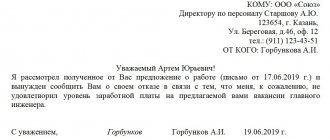- Nuances and features
- Conclusion procedure
- How to draw up a document correctly?
- Sample application
- How is it claimed?
- Consequences
- Duration of the settlement agreement
- Termination
In Russian society, there has been a strong association between the bankruptcy procedure of an individual and the mandatory sale of property, the purpose of which is to pay off debt. But this scenario is not the only possible one.
The current No. 127-FZ “On Insolvency (Bankruptcy)”, dated October 26, 2002 (as amended on July 13, 2021), allows for three possible scenarios:
- the already mentioned sale of assets;
- restructuring of a citizen's debt;
- settlement agreement.
The last item on the list deserves separate and more careful consideration. The fact is that a settlement agreement in case of bankruptcy of an individual is rightly considered a compromise way to solve the problem. It represents an agreement between the debtor and creditors, which can be reached at any stage of bankruptcy and become the basis for termination of the procedure.
The definition of the term “settlement agreement in case of bankruptcy of an individual” is given in Article 2 No. 127-FZ. The basic rules of practical application are regulated by Chapter VIII of this Federal Law.
An important nuance of using this method of solving problems with an individual’s debts is the possibility of making changes to lending agreements. They are expressed in providing a deferment on payments, reducing the interest rate for using borrowed funds, drawing up a new or revising an existing payment schedule.
For your information . Often, a settlement agreement within the framework of a citizen’s bankruptcy procedure actually becomes an option for restructuring. But it is much less strictly regulated at the legislative level. For example, it is possible to conclude an agreement for a period of more than three years (the maximum for a regular restructuring) or to establish for the debtor an income below the subsistence level.
The considered option for implementing the bankruptcy procedure provides several important advantages, including:
- benefits for both the debtor and creditors. Both sides make concessions, but end up with a deal that suits everyone;
- efficiency. A settlement agreement drawn up and confirmed by a judge comes into force immediately, and the bankruptcy procedure using other methods of solving the problem takes at least 7-8 months, often stretching for 1-2 years;
- minimizing the costs of litigation and payment of the arbitration manager.
The combination of such an impressive set of advantages often makes a settlement agreement the optimal way to close a bankruptcy case. An important addition for all participants in the process.
Nuances and features of a settlement agreement in case of bankruptcy of individuals
A mandatory condition for the entry into force of a settlement agreement in the event of bankruptcy of a citizen is compliance with the legal features of its conclusion and approval. The main ones are:
- obtaining the consent of both parties - both the debtor and creditors;
- selection of the arbitration court, whose function is to consider the document (if the case has already been opened, move on to the next point);
- approval of the settlement agreement by the court.
Consistent fulfillment of the three listed requirements means the entry into force of the document. After this, it is impossible to make adjustments to the text of the document. Reaching a compromise between creditors and the debtor leads to the launch and implementation of the following set of measures:
- termination of the previously approved payment schedule under the restructuring plan;
- stopping the moratorium on satisfying financial claims of creditors;
- payment of debts under a settlement agreement;
- returning to the debtor the right to dispose of his property;
- revocation of bankrupt status assigned to the debtor after the opening of a financial insolvency case;
- termination of the powers of the arbitration manager and payments to him.
An important feature of the agreement under consideration is the absence of restrictions on the validity period. The duration of the document is determined solely by the parties to the case, and the initiator of its reduction or extension is the creditors.
Can an unapproved settlement agreement in a case become a source of information for the court?
A settlement agreement reached after the initiation of a case in court is valid if it is approved by the court (Article 49 of the Code of Civil Procedure, Article 39 of the Code of Civil Procedure, Article 173 of the Code of Civil Procedure). An interested party, in accordance with the principle of discretion, has the right to refuse to conclude a settlement agreement in court, despite the fact that the agreement itself was reached by the parties.
The right of a party to evade notarization of an agreement reached during out-of-court or pre-trial reconciliation is interpreted in a similar way (Part 5 of Article 12 of the Federal Law “On Mediation”, Clause 6 of Article 48, Article 59.1 of the Fundamentals of Legislation on Notaries). This right is perceived as unconditional, based on freedom of contract (Article 421 of the Civil Code).
For example, in case No. A40-25610/16 (Resolution of the Ninth Arbitration Court of Appeal dated July 2, 2018 No. 09AP-24860/2018), the court pointed out the inconsistency of the applicant’s arguments that the court ignored arguments about the abuse of procedural rights of the opposite party when refusing to conclude a settlement agreement. The court indicated that concluding a settlement agreement is a right, and not an obligation, of a party to the arbitration process. Refusal to conclude a settlement agreement does not indicate bad faith on the part of the party or abuse of law. The higher authority noted that having established that the settlement agreement was not actually concluded, since the plaintiff refused it, the court rightfully did not examine either the terms of the settlement agreement or the position of the second party, and accordingly did not resolve the issue of approving the settlement agreement, having reasonably rejected the defendant’s petition.
The court in this case did not establish any other facts and did not make any other conclusions. This approach is the most common: the case below demonstrates that it persists over time.
In case No. A19-15309 (Resolution of the Arbitration Court of the East Siberian District dated August 27, 2015 No. F02-4906/2015), during enforcement proceedings the parties reached a settlement agreement, which was submitted to the court for approval, but before the court hearing on this issue, the plaintiff declared on the withdrawal of the application for approval of the settlement agreement. The Higher Court concluded that the parties had not reached reconciliation, the presence of a mutually agreed upon will of the parties to conclude a settlement agreement was not established when considering the relevant issue, and on this basis refused to consider the issue of approving the settlement agreement.
However, the “application for adjournment due to reconciliation” scheme is often used to delay the process; obtaining information about the evidentiary resources of the opposing party; the limits of the enemy's possible concessions.
And in domestic judicial practice, for an equally long period of time, a different practice has been developing - when a settlement agreement, which was not approved by the court, including due to the refusal of the parties to approve it in court, is studied by the court for the purpose of a comprehensive study of the circumstances of the case, just as the reasons are investigated refusal to sign a settlement agreement. In such cases, the terms of the settlement agreement and the actual conduct of the party are relevant.
Thus, in a claim brought by the administration of the city district to invalidate the defendant’s registered ownership of an unfinished construction project, to recognize the disputed property as an unauthorized construction and to oblige the defendant to demolish the disputed property at his own expense, the court found that the administration refused to enter into a settlement agreement with the defendant, under the terms of which the parties had to bear the costs associated with the removal of the sewer jointly (Resolution of the Federal Antimonopoly Service of the Far Eastern District dated March 18, 2010 N F03-1304/2010 in case N A51-7165/2009). The court took into account the fact that the administration did not provide evidence that the location of the sewer collector on the above-mentioned land plot is essential and excludes further construction of the disputed property and its operation, that the removal of the sewer collector, which prevents further construction, is impossible, since, in including, proceeded from the fact that the parties in the settlement agreement did not resolve only the issue of distribution of costs for the removal of the sewer.
In another case (Appeal ruling of the Khabarovsk Regional Court dated January 30, 2017 in case No. 33-671/2017) on the recovery of monetary compensation for moral damages, the defendant referred to the fact that the plaintiff refused to enter into a settlement agreement with payment of compensation in the amount of 200,000 rubles, at the same time, he could not explain how he determined the amount of the claims.
The Arbitration Court of the East Siberian District (Resolution dated October 13, 2016 N F02-4678/2016 in case N A33-13406/2015), when considering the dispute over the restoration of electricity supply, the court took into account that the plaintiff refused to conclude a settlement agreement in which the defendant proposed his technically possible way to restore power supply.
In all the examples given, an agreement not reached by the parties became a source of information for the court about the fact sought. This does not contradict the provisions of the Civil Procedure Code and the Arbitration Procedure Code, since there is no prohibition on the court examining an unapproved settlement agreement.
Regarding judicial reconciliation, Part 1 of Art. 6 of the Regulations for Judicial Reconciliation establishes that “the parties, the judicial conciliator and other persons present during judicial reconciliation do not have the right, without the written consent of both parties, to refer, when considering the case in court, to the opinions or proposals expressed by one of the parties regarding possible reconciliation; admissions made by one of the parties during the procedure; manifestation of the readiness of one of the parties to accept the proposal for reconciliation made by the other party; information contained in a document prepared solely for judicial conciliation.” Similar rules are contained in Art. 5 Federal Law “On Mediation”. That is, based on the content of this norm, the court should not learn about the behavior and agreements of the parties during reconciliation (except in cases where the parties themselves have not agreed otherwise). On the other hand, part 3 of Art. 25 of the same Regulations indicates that “information about the achievement of the result of reconciliation by the parties and, if necessary, a petition for its acceptance or approval no later than the day following the day of its achievement, is transmitted to the court in writing by a judicial conciliator.” Art. 12 of the Federal Law “On Mediation” contains similar provisions establishing the right of the parties to submit the agreement for approval to the court.
This raises the question of the ability of the court to examine an agreement reached during reconciliation or mediation, if it is actually in the case materials (it was presented to the court by the conciliator or the parties), but at the court hearing one of the parties refused this agreement. Article 6 of the Rules for Judicial Conciliation and Art. 5 of the Federal Law on Mediation establishes a veil of confidentiality over information disclosed during reconciliation. The law directly stipulates the special status of this information and the fact that it cannot be disclosed in court without the consent of the parties. However, the agreement submitted for approval to the court is no longer information related to the progress of reconciliation, it is its result. Therefore, the court will be able to use the information contained in the agreement submitted for approval to the court as a source of information about the facts sought in the case.
How to draw up a document correctly?
The basic requirements for the execution and content of a settlement agreement are set out in Articles 155-156 No. 127-FZ. Failure to comply with the provisions of the basic Federal Law becomes grounds for rejection of the document by the arbitration court.
When answering the question of how to correctly draw up a settlement agreement, several fundamentally important points should be taken into account. The first and main one is the written form of the document. No oral agreements are valid.
Secondly, Article 155 No. 127-FZ establishes those who have the right to sign the agreement. On the one hand, this is the debtor himself, and on the part of creditors and authorized government bodies (if they participate in the case) - a person acting in the status of an authorized representative of the creditors’ meeting. If third parties take part in the bankruptcy procedure, they or their authorized representatives endorse the document in the standard manner.
The third legal point is the mandatory conditions that must be contained in the settlement agreement. They are regulated by Article 156 No. 127-FZ and include the validity period of the document and a detailed procedure for fulfilling the debtor’s obligations.
In this case, it is allowed - with the consent of the creditor or an authorized body - to include in the text of the document the conditions for termination of the monetary obligation. In such a situation, one of the following mechanisms is used:
- receiving compensation;
- exchange of a monetary claim for a share/shares in the capital of an enterprise, shares, bonds or other securities, as well as novations of a financial liability;
- free debt forgiveness;
- alternative methods that do not contradict current legislation.
A mandatory condition for the termination of monetary claims is the absence of a violation of the rights of other bankruptcy creditors, obligations to which are included in the register.
Fourthly, the text of the settlement agreement may include conditions that change the procedure and timing of mandatory payments. We are talking about taxes and other payments to the budget. At the same time, the new procedure and timing for their implementation should also not contradict the current regulatory framework.
The fifth important legal point is as follows. The conditions for the fulfillment of obligations in non-monetary form should not lead to the formation of advantages for the creditor receiving them over others, whose claims are satisfied according to the standard - monetary - option.
Another significant nuance. Interest should be charged on the amount of monetary claims and obligatory payments. Their value is calculated based on the key rate of the Central Bank of Russia on the date of approval of the settlement agreement by the arbitration court. The calculations take into account those claims of creditors that are not repaid in accordance with the agreed schedule. It is allowed to accrue interest that is less than the key rate of the Central Bank of the Russian Federation or to completely exempt it from payment - with the obligatory consent of the creditor.
For your information . The settlement agreement may include a condition for removing the lien from the debtor's property. If it is not in the text of the document, the encumbrance remains.
Conditions for terminating a criminal case upon reconciliation between the accused and the victim
The criminal law of the Russian Federation provides for the possibility of terminating a criminal case for fraud in connection with the reconciliation of the parties. This provision is enshrined in Art. 76 of the Criminal Code of the Russian Federation, and the procedure and bodies authorized for this are provided for in Art. 25 Code of Criminal Procedure of the Russian Federation.
A criminal case can be terminated either by the court or by the investigator with the consent of the head of the investigative body, as well as by the investigator with the consent of the prosecutor.
The legislator has established an exhaustive list of requirements necessary for the reconciliation of the parties
:
- bringing a person to criminal responsibility for the first time;
- the person has committed a crime of minor or medium gravity;
- mandatory reconciliation between the accused and the victim and reparation of the harm caused.
A person is recognized as having committed a crime for the first time, provided that he was not prosecuted at all or was released from criminal liability for the crime committed or was previously convicted, but the criminal record was withdrawn or expunged in the manner prescribed by law.
In accordance with Art. 15 of the Criminal Code of the Russian Federation, crimes of minor gravity are recognized as intentional and careless acts, for the commission of which the maximum punishment provided for by the Criminal Code of the Russian Federation does not exceed three years of imprisonment.
Crimes of medium gravity are recognized as intentional acts, for the commission of which the maximum punishment provided for by the Criminal Code of the Russian Federation does not exceed five years of imprisonment, and careless acts, for the commission of which the maximum punishment provided for by the Criminal Code of the Russian Federation does not exceed three years of imprisonment.
Reconciliation between the accused and the victim is a bilateral act. The initiative must come from the guilty person and be accompanied by reparation for the damage caused to the victim. It is important that this happens voluntarily and legally.
Making amends means eliminating the negative consequences that have occurred.:
- compensation to the victim for the damage caused;
- compensation for moral damage;
- making an apology.
Compensation for damage and reparation of harm can be carried out not only by the person who committed the crime, but also at his request by other persons, if the perpetrator does not have a real opportunity to perform these actions.
Note! Promises, as well as various kinds of obligations of the person who committed the crime, to make amends for harm in the future, regardless of whether he has an objective opportunity to fulfill them, are not circumstances that give grounds for releasing him from criminal liability.
Thus, if you provide a settlement agreement in a criminal trial between the victim and the accused, who promises to compensate for the harm in the future, then it will not be accepted by the court and will be rejected.
The victim or his legal representative must express a desire to terminate the proceedings in connection with the reconciliation of the parties, which is set out in the application. The guilty person, in turn, must agree to this on the specified basis.
If a crime is committed by several persons, only those who have reconciled with the victim and made amends for the harm caused to him can be released from criminal liability.
If several victims suffered as a result of a crime, then the lack of reconciliation with at least one of them prevents the person from being released from criminal liability for this act on the basis of Article 76 of the Criminal Code of the Russian Federation.
We recommend! The concept and essence of the object of the crime
It should be noted that the release of a person from criminal liability in connection with the reconciliation of the parties is a non-rehabilitating basis. That is, in this case, the presence of corpus delicti in the act is confirmed, and therefore this fact does not entail rehabilitation.
Sample application for a settlement agreement in bankruptcy
As already noted, the contents of a bankruptcy settlement agreement are subject to a standard set of requirements. It includes the presence in the document of the following information:
- information about compensation (if any);
- list of obligations that are terminated;
- the amount of debts that are forgiven by creditors;
- list of newly arising obligations.
A sample settlement agreement in a bankruptcy case is available here. It can be used as a basis for developing a new document.
Names of the parties in the settlement agreement to the court
The parties write down the name of the document - “SETTLING AGREEMENT” and the place and date of its preparation. We indicate the full name of the plaintiff and the full name of the defendant, if the plaintiff is an individual, then we write that he acts on his own behalf, and if a legal entity we write down the following: LLC "ROMASHKA" represented by the general director Nikolay Nikolaevich Sidorov, acting on the basis of the Charter.
We also indicate again the case number and the court in which the case is being heard. For example: acting as parties in case No. 2-5000/2020 , considered in the Kirovsky District Court of St. Petersburg.
How is it claimed?
The procedure for approving the document under consideration, concluded as part of a bankruptcy case for an individual, is determined by Part 4 of Article 150 and Article 158 No. 127-FZ. The first and most important thing to note is that the settlement agreement is approved exclusively by the arbitration court. We are talking about the body conducting the proceedings in the case. The judge makes a ruling that contains not only approval of the agreement, but also a decision to terminate the bankruptcy case.
If the document is drawn up at the stage of bankruptcy proceedings, the individual is declared bankrupt. At the same time, the fact that bankruptcy proceedings have not been executed is separately indicated.
An important feature of the established procedure is the impossibility of the court making changes to the text of the settlement agreement. This practice became generally accepted after the release of Information Letter No. 97, issued by the Presidium of the Supreme Arbitration Court and dated December 20, 2005.
An equally significant nuance is the conditions necessary for the court to make a decision to approve the document. We are talking about mandatory repayment of debts under obligations to creditors classified as first and second priority.
When is it possible to make peace?
All issues can be resolved amicably both at the investigation stage and when the case has already been transferred to court. The main thing is to take the appropriate actions before the judge announces his intention to go to the deliberation room to prepare for the announcement of the verdict.
The suspect's lawyer plays a large role in the process of achieving reconciliation. It is he who has the power to negotiate with the victim or his representatives. In this case, various options for compensation for both material and moral damage can be considered.
This could be payment of funds, payment for treatment, or transfer of property. Please note that it is not necessary that the entire amount of damage will be reimbursed immediately.
For example, a representative of a suspect and a victim can draw up an agreement in the presence of a notary, which may provide for a payment schedule.
We recommend! Defense of the accused in a criminal case
Consequences of the approval of the settlement agreement for individuals. persons
Successful completion of the bankruptcy procedure, including as a result of concluding a settlement agreement, means the release of an individual from financial obligations. This does not happen in several situations, which are described in paragraphs 4-6 of Article 213.28 No. 127-FZ. These include:
- bringing a citizen to liability (criminal or administrative) resulting from unlawful actions within the framework of the bankruptcy procedure of an individual. An additional condition is that the judicial act on punishment must enter into force;
- failure to provide or provision of knowingly false information to participants in the proceedings in a bankruptcy case - to the arbitration manager or directly to the court. The fact must be confirmed by a relevant court decision or other act;
- illegal actions of the debtor, for example, fraud, malicious evasion of payment of accounts payable, taxes and fees, provision of knowingly false data when obtaining a loan, concealment or deliberate destruction of property. They must be recorded as part of the bankruptcy proceedings.
When determining the consequences of approving a settlement agreement, the stage of the bankruptcy procedure when the court made this decision is of great importance. If this happened before the introduction of bankruptcy proceedings, the debtor does not acquire bankrupt status. Otherwise, it is recognized as such, which leads to three main consequences:
- the need to inform the lender about the fact of bankruptcy within 5 years when applying for a loan;
- ban for 5 years from initiating bankruptcy proceedings against oneself;
- ban for 3 years from holding managerial positions in organizations.
Consequences of approval for legal entities
If the arbitration court approves a settlement agreement in the event of bankruptcy of a legal entity, then bankruptcy proceedings are immediately terminated. There are special consequences at each stage of bankruptcy. We collected them in a table.
| Bankruptcy stage | Consequences |
| financial recovery | debt repayment schedule is not being met |
| external control | there is no moratorium on satisfying creditors' claims |
| bankruptcy proceedings | the decision to declare him bankrupt and to open bankruptcy proceedings is not executed. |
The settlement agreement comes into force on the date of approval and is binding. It deprives the powers of a temporary, administrative, external and bankruptcy manager. And the debtor or a third party begins to pay off debts.
IMPORTANT!
It is impossible to unilaterally refuse to fulfill an agreement that has entered into force.
Duration of the settlement agreement
One of the main parameters of the settlement agreement is the validity period. It must be directly linked to debt repayment schedules to creditors and authorized bodies. In fact, the agreement and the last of the schedules (if there are several) must end at the same time.
An important additional condition is to indicate the date of preparation on the document. Another equally important mark is the date of approval of the settlement agreement by the arbitration court.
It is possible to change the validity period of the compromise document, but this requires the consent of all interested parties.
An alternative option for adjusting the timing involves forcibly terminating the agreement. This requires the adoption of an appropriate court decision, the basis for which is the failure of one of the parties to fulfill their obligations. Naturally, in the vast majority of cases we are talking about the debtor.
How to Write an Approval Statement
The debtor, external, bankruptcy or financial manager submits to the arbitration court an application for approval of the settlement agreement. This is given from 5 to 10 days from the day when a compromise was reached. This application must be accompanied by:
- draft settlement agreement on bankruptcy;
- minutes of the meeting of creditors who decided to agree to a settlement;
- a list of bankruptcy creditors and authorized bodies that are known but do not make claims. You need to indicate their addresses and the amount of debts;
- register of creditors' claims;
- documents that confirm that there are no debts under the claims of creditors of the 1st and 2nd stages;
- decision of the management bodies of the debtor - legal entity (if there are special rules under 127-FZ);
- letters of objection from bankruptcy creditors and authorized bodies that voted against or did not vote on the issue of concluding a settlement agreement, if such documents exist;
- other documents that must be provided under bankruptcy law. For example, ballots for voting at a meeting of creditors (clause 50 of the Resolution of the Plenum of the Supreme Arbitration Court No. 29 of December 15, 2004).
Termination of the settlement agreement
The law does not allow termination of a settlement agreement concluded as part of a bankruptcy case by agreement of the parties. This can only happen as part of a trial.
As already noted, the basis for making such a decision is the debtor’s failure to fulfill financial obligations. It is important that the amount of overdue payments reaches a quarter of the total volume of claims recorded at the time of signing the settlement agreement. The initiator of the legal proceedings are creditors or authorized government bodies. The text of the statement of claim must indicate the debtor's violation of the obligations stipulated by the agreement.
For your information . Termination of the settlement agreement leads to the reopening of the bankruptcy case and the re-appointment of an arbitration manager.
In the situation described above, the legislation gives creditors the right not to terminate the settlement agreement, but to obtain a writ of execution to collect outstanding debts. This becomes the basis for initiating enforcement proceedings, which are carried out by bailiffs. They are empowered to block bank accounts and cards, ban travel abroad, confiscate and sell the debtor’s property, etc.
Submission to court and consideration
An application for approval of a settlement agreement can be submitted at any stage of the process before the court's decision. And even later - as part of enforcement proceedings.
The parties send the application to the court, which hears the case. If the settlement agreement is planned to be approved at the stage of execution of the court decision, then to the court of first instance. In this case, the court reviews the document within 1 month.
The application will be considered in court. The parties must understand that if they simply sign a settlement agreement and statement, but do not appear at the court hearing, then the court will not consider it. Only if both parties send a request to consider the case in their absence, then the court considers the application on its merits.
The court, in the process of considering the settlement agreement, will examine the evidence presented in the case. But only in that part that is needed to verify the text of the settlement agreement, no more. He may invite the parties to exclude certain conditions (which are contrary to the law or violate the rights of third parties). But he himself has no right to change the text or supplement it.
The court will formalize the decision with a ruling. It will come into force immediately and can be appealed by filing a cassation appeal. If the court refuses to satisfy the application for approval of the settlement agreement, the interested person may file a private complaint.







